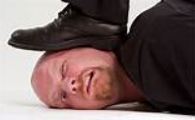Contents
- Introduction
- Preface
- Overview
- Relief Valve
- LECTURE 1: Why We Are In The Dark About Money
- LECTURE 2: The Con
- LECTURE 3: The Vatican-Central to the Origins of Money & Power
- LECTURE 4: London The Corporation Origins of Opium Drug Smuggling
-
LECTURE 5: U.S. Pirates, Boston Brahmins Opium Drug Smugglers
-
THE BOSTON BRAHMINS
- Clipper Ships
- The Boston Money Tree
- John Perkins Cushing
- Abiel Abbott Low
- William H. Russell and Samuel Russell
- The Combination Russell, Jardine, and Matheson
- Russell Sturgis
- Colonel Thomas Handasyd Perkins
- The Perkins Family
- Frances Perkins--The Only Good Brahmin
- American House of Russell and Co.
- Harvard Corporation
- Opium to Brahmins to Yale to CIA
- Forbes Family I
- Warren Delano
- Hope & Co. - Baring Brothers Bank
- John Jacob Astor
- Taft Family
- 1924 America's 1% Exposed
- Proof FDR Knew About his Grandfather's connection with Opium China Trade
- Forbes - John Kerry Family II
- George Bush Family Origins in Opium Drug Smuggling
- Black Market Bones
- Thuggee Barbara Bush Family
- Thuggee Bush Family and the CIA
- John Quincy Adams and the Chinese Opium Trade
- The Ammidons
- Augustine Heard
- Joseph Coolidge IV
- Lowell Family
- Pirates Profiteers Banksters Traders Transfers
- Pirates
- White Slavers, Cargo, Property, Auctions, Amazing Grace
- $ Colonial Labor: Indentured Servants
- England to Philadelphia Slave Trade and Opium
- Extract from Charter of Freedoms and Exemptions to Patroons 1629
- The Definitive Treaty of Peace
- Pennsylvania Charter of Privileges 28 October 1701
- Opium Trade -- American Drug Smuggling Pirates
- Opium In America
- 1% Power Elite Networks
- 1% Elite Networks Bush & The CIA
- BEFORE Skull & Bones
- SKULL AND BONES
- Caribbean Pirates in the American South
- Who Were the Tories
- The Golden Age of Imperialism Opium Act 1908
- Global Dominance Groups
- The New World Order
- Characteristics of Fascism
- War on drugs
- Lecture 5 Objectives and Discussion Questions
-
THE BOSTON BRAHMINS
- LECTURE 6: The Shady Origins Of The Federal Reserve
- LECTURE 7: How The Rich Protect Their Money
- LECTURE 8: How To Protect Your Money From The 1% Predators
- LECTURE 9: Final Thoughts
KNOW YOUR MUHFAGGAZ!
British East India Company <> Dutch East India Company
BRAHMINS ARE THE 1%
PIRATES - - MERCHANTS - - CLASS WARFARE
Politics <> Law <> Religion
EVER WONDER WHY THE WORD "KA CHING" MEANS MONEY?
 John Perkins Cushing, called “Ku-Shing” by the Chinese, sailed for China when only sixteen years old, to take the position of clerk in the counting-house of his uncle, Colonel Thomas Handasyd Perkins. The head of the firm in China at this time was Ephraim Bumstead, who was soon obliged to leave Canton on account of illness, and died at sea. Young Cushing, therefore, arrived in China at this early age to find that he was the only representative of the Perkins firm in the East. Colonel Perkins, on hearing of Mr.Bumstead’s death, at once prepared to go to China, but just before sailing he received letters from the young apprentice, who presented the condition of affairs in such a favorable light that the intended journey was abandoned. Cushing managed the affairs of the firm so skillfully that the consignments continually increased. He was soon taken into partnership with the Perkinses and continued with them until the consolidation of their firm with Russell & Co. in 1827.”
John Perkins Cushing, called “Ku-Shing” by the Chinese, sailed for China when only sixteen years old, to take the position of clerk in the counting-house of his uncle, Colonel Thomas Handasyd Perkins. The head of the firm in China at this time was Ephraim Bumstead, who was soon obliged to leave Canton on account of illness, and died at sea. Young Cushing, therefore, arrived in China at this early age to find that he was the only representative of the Perkins firm in the East. Colonel Perkins, on hearing of Mr.Bumstead’s death, at once prepared to go to China, but just before sailing he received letters from the young apprentice, who presented the condition of affairs in such a favorable light that the intended journey was abandoned. Cushing managed the affairs of the firm so skillfully that the consignments continually increased. He was soon taken into partnership with the Perkinses and continued with them until the consolidation of their firm with Russell & Co. in 1827.”
AMERICAN WEALTH CAME FROM BOSTON PIRATE OPIUM DRUG SMUGGLERS
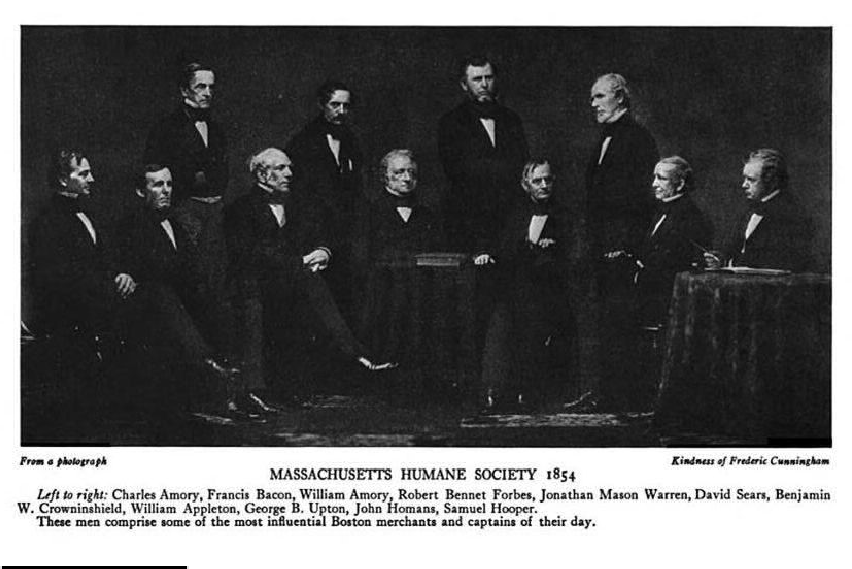
THE 1% AMERICAN WEALTH CAME FROM BOSTON PIRATE OPIUM DRUG SMUGGLERS aka the BOSTON BRAHMINS
The Old Clipper Days ~ Julian S. Cutler
"When we sold the Heathen nations rum and opium in rolls,
And the Missionaries went along to save their sinful souls."
Clipper Ships Register of The Opium Fleet 1823 - 1860
British stronghold of New York and Boston where they sent their first loyal and "Royal English subjects" to settle in their new land they were given by the Queen. England thought English subjects owned the land.
WHO ARE THE BOSTON BRAHMINS?
OPIUM DRUG SMUGGLING PIRATES, & THE 1%The Elite 1% Many of the Brahmin families trace their ancestry back to the original founders of Boston, while others entered New England aristocratic society during the nineteenth century with their opium drug smuggling profits, or by marrying into established Brahmin families like the Emersons and Winthrops.
The First families from England who sailed over to America then went to live in Boston, Cape Cod, and Nantucket. They became known as the Boston Brahmins and made all their money and wealth as Pirates Opium Drug Smugglers and Slavers.
A SHORT SUMMERY: 5 Elite Families Who Made Their Fortunes in the Opium Trade
ASTOR, FORBES, RUSSELL, DELANO, PERKINS There's dirty money buried in the basement of some of America's wealthiest and most powerful families.
2017 The SACKLER FAMILY Built a dynasty WITH OPIUM has generated billions of dollars — and millions of addicts
After the First "Opium War", Russell & Co. Became the Third Largest Dealer in Opium
In 1851, Baring and Bates brought in another American, Russell Sturgis as partner.
Despite the embarrassment to his partners caused by his sympathies for the South in the American Civil War, Sturgis proved a capable banker and, following the death of Bates in 1864, gradually assumed a leadership role in the firm. In the 1850s and 1860s, commercial credit business provided the firm with its 'bread and butter' income.
SEE Russell Sturgis and Chairman of Barings Bank London Sturgis Russell. Baring Brothers bank in England, sponsor of the world narcotics traffic ... Cushing. He in his own wikipedia entry is once a head of Baring Bros, London. He had country houses at Coombwood, Mt Felix and The Farm ...
SEE Russell Trust
FIND OUT MORE
- Slate.com: "What's a Boston Brahmin?"
- Family Names of the Boston Brahmin Families
- Cornell University Making of America: "The Professor's Story: Chapter I — The Brahmin Caste of New England", Atlantic Monthly, Jan 1860, p. 91 Family Names of the Boston Brahmin Families "Making of America: "The Professor's Story: Chapter I — The Brahmin Caste of New England", Atlantic Monthly, Jan 1860, p. 91
- Federal Judicial Center Biographical Directory of Federal Judges
- Massachusetts Historical Society
- See the history of The Wall Street Banksters
-
Fleshing Out Skull & Bones: Investigations into America's Most Powerful Secret Society
by Kris Millegan (Editor) link to www.amazon.com
"Boston Toast" by Harvard alumnus John Collins Bossidy.
"And this is good old Boston,
The home of the bean and the cod,
Where the Lowells talk only to Cabots,
And the Cabots talk only to God."
ROOTS OF THE TERM "BRAHMIN" AND THUG
IN CLASS WARFARE
 THUGGEE OR BRAHMIN
THUGGEE OR BRAHMIN
THE ORIGINS OF THE BOSTON BRAHMIN
The English Politicians understood that there was a casted system in India that placed great separation between classes. This idea resonated with these politicians/thugs and they adopted the concept for themselves.
In the Indian language, a Brahmin is a member of the priestly class in the Indian subcontinent and belongs to the upper caste society.
Meanwhile, a THUGGEE sect\fraternity of assassins were of the lowest class; ironically, there isn't much of a difference between a brahmin and a thug .
Both are out to get your money and property and care only about themselves.
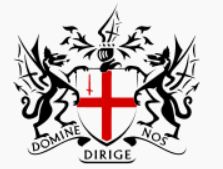
Under England's Governor General Warren Hastings ( IT WAS HIS IDEA TO START OPIUM SMUGGLING INTO CHINA)
an administrative precedent was set which profoundly shaped later attitudes towards the government of British India. Hastings had a great respect for the ancient scripture of Hinduism and set the British position on governance as one of looking back to the earliest precedents possible.This allowed Brahmin advisors to mold the law. This approach accentuated the Hindu caste system and, to an extent, the frameworks of other religions. Thus, British influence on the fluid social structure of India can in large part be characterized as a solidification of the privileges of the Hindu caste system through the influence of the exclusively high-caste scholars by whom the British were advised in the formation of their laws.
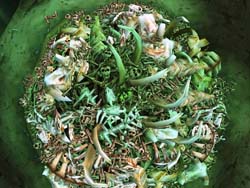 Panama and the Criminalization of the Global Finance System
Panama and the Criminalization of the Global Finance System
- Registered in: Panama
- Linked countries: Switzerland
- Agent: Mossack Fonseca
It is only fitting that it is one of the original Boston Brahmins has a nickname that literally denotes"money" or "getting paid" in contemporary culture.
2013 Riskiest areas to ship where the pirates rule the seas
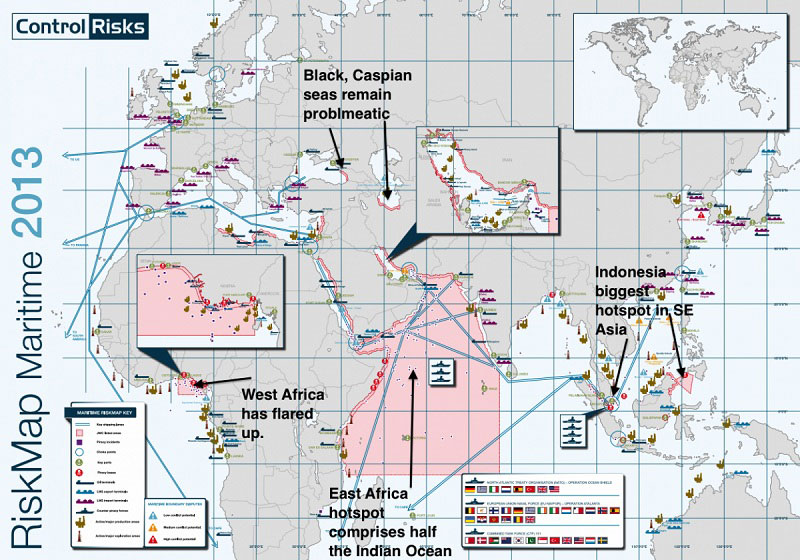

ORIGINS OF THE BOSTON BRAHMINS' OPIUM DRUG SMUGGLING WEALTH
FIND ALL THE BOSTON BRAHMINS IN THE PANAMA PAPERS
As we have seen in previous chapters, when the British East India Company established its grip on India in the eighteenth century, it took over a system of state control over opium. The British initially traded massive amounts of opium to China for its goods. However, at one point, the Chinese emperor saw how much opium was hurting his country and forbid Opium's importation. Despite the Emperor's protests, the British forced China to take its Opium...or else! The British victories in the Opium Wars forced China to submit to Britain's demands to open its ports and markets to opium---one of the saddest and most embarrassing stories rarely mentioned in history books. JARDINE MATHESON
As the [ Panama Papers ] British East India company slowly gave up its opium trade, it transferred the business of illegal opium drug smuggling to American merchants who continued the highly profitable business of international drug pushers. The wealthiest 1% of America, the Boston Brahmins, continued this legacy of illegal opium drug smuggling. It is important to fully comprehend what is not told in our history books: that one of the driving forces of wealth in the American north was illegal opium trade.
BOSTON BRAHMAN OPIUM SMUGGLERS ROOTS ARE HERE TODAY
PERKINS & RUSSELL
FOUNDING FATHERS OF U.S. OPIUM DRUG RACKET
THE KEY PLAYERS
Russell & Company was the largest and most important American trading house in China from 1842 to its closing in 1891.
Samuel Russell founded Russell & Company in Canton, China, in 1824. Dealing mostly in silks, teas and opium, Russell & Company prospered, and by 1842, it had become the largest American trading house in China. It kept its dominance until its closing in 1891. Russell withdrew from the company in 1836 and returned to the United States.
Samuel Russell, second cousin to Bones founder William H., established Russell and Company in 1823.
Its business was to acquire opium from Turkey and smuggle it into China, where it was strictly prohibited, under the armed protection of the British Empire.The prior, predominant American gang in this field had been the syndicate created by Thomas Handasyd Perkins of Newburyport, Massachusetts, an aggregation of the self-styled “blue bloods”' or Brahmins of Boston's north shore. Forced out of the lucrative African slave trade by U.S. law and Caribbean slave revolts, leaders of the Cabot, Lowell, Higginson, Forbes, Cushing and Sturgis families had married Perkins siblings and children. The Perkins opium syndicate made the fortune and established the power of these families. By the 1830s, the Russells had bought out the [[[[ PANAMA PAPERS ]]] Perkins syndicate and made Connecticut the primary center of the U.S. opium racket. Massachusetts families (Coolidge, Sturgis, Forbes and Delano) joined Connecticut (Alsop) and New York (Low) smuggler-millionaires under the Russell auspices. (Certain of the prominent Boston opium families, such as Cabot and Weld, did not affiliate directly with Russell, Connecticut and Yale, but were identified instead with Harvard.)
John Quincy Adams and other patriots had fought these men for a quarter century by the time the Russell Trust Association was set up with its open pirate emblem -- Skull and Bones. With British ties of family, shipping and merchant banking, the old New England Tories had continued their hostility to American independence after the Revolutionary War of 1775-83.
SEE http://www.scribd.com/doc/161683126/American-Merchants-and-the-China-Opium-Trade-1800-1840
AND http://www.smokershistory.com/before.html
Russell Company partners included
- Warren Delano
- John Cleve Green, banker and railroad investor who made large donations to and was a trustee for Princeton;
- A. Abiel Low a shipbuilder, merchant and railroad owner who backed Columbia University;
- Merchants Augustine Heard and Joseph Coolidge.
- Coolidge's son organized the United Fruit company, and his grandson,
- Archibald C. Coolidge, was a co-founder of the Council on Foreign Relations.
- Partner John M. Forbes "dominated the management" of the Chicago, Burlington and Quincey, with Charles Perkins as President.
- Other partners and captains included Joseph Taylor Gilman, William Henry King, John Alsop Griswold, Captain Lovett and Captain J. Prescott.
- Captain Prescott called on his friend and agent in Hong Kong F.T. Bush, Esq. frequently.
Captain Prescott and The Opium Smugglers by Edouard A. Stackpole
The Marine Historical Association, Inc.1954
Mystic, Connecticut
78 pps First Edition Out-of-print
Excerpt from: Captain Prescott and The Opium Smugglers by Edouard A. Stackpole The Marine Historical Association, Inc. 1954 Mystic, Connecticutt 78 pps First Edition Out-of-print
-- excerpts---
-- "Your last letter I received in September as well as Father's and it seems almost an age since I have heard from you or him. Messrs. Bush & Co., Hong Kong (an American house) forwarded me a large packet of newspapers per "Lou Chow" from Boston, Portsmouth journals and Boston ditto. I suppose they were from Father tho there was no letter or signature attached, therefore could not identify my friend. Russell & Co. have orders to keep all my letters. --
-- He mentioned the death of his Mother and the marriage of George W. Prescott, the only news. I hope George has got a good wife. Do tell me who he married.--
--"July 21 (1847): Hong Kong. I arrived here safe yesterday, just in season to evade a very severe typhoon which came on most furiously in an hour after I anchored. So you see, good luck to the last. At Messrs. Bush & Co., I found your overland letter of April 30 --
--I left Canton the 24th for Cum-sing-moon and arrived there Christmas morning, finished what little business I had with Capt. Endicott and sailed the same day for this place. When I anchored early the following morning had a visit from F. T. Bush Esq. (American Consul) who is a good fellow and my agent here. "I always live at his house when at this place. His wife is a pleasant woman, besides their five children, and there is no place in China where I feel more at home.--
Note how politically influential these men and their heirs became:
Warren Delano, Jr., the grandfather of Franklin Roosevelt (32nd President of the United States) served as the Chief of Operations of Russell and Company in Canton.
John Murray Forbes, the great-granduncle of 2004 presidential candidate John Forbes Kerry.
Robert Bennet Forbes, his son, was the head of Russell and Company.
Abiel Abbot Low, founder of trading company A. A. Low & Brothers, served as a partner.
William Henry Low, Abiel Abbot Low's uncle, senior partner of the firm.
William Henry Low, Abiel Abbot Low's brother.
Augustine Heard, who later founded Augustine Heard & Company, a large trading house in China.
Russell Sturgis, who later became head of Baring Brothers in London.
John Cleve Green 1800-1875 Philanthropist - benefactor of Princeton
Russell
THE 1% MULTINATIONALS
Investment Group -
Google has added two former Senate chiefs of staff to its lobbying roster. The Simmons & Russell Group will lobby for the Silicon Valley giant on “issues related to competition and technology.” Robert Russell, once top aide to Sen. Mark Pryor (D-Ark.), and Kyle Simmons, a former Senate Minority Leader Mitch McConnell (R-Ky.) chief of staff, make up the firm.
Russell Investment Group is a Washington, USA corporation, which operates through subsidiaries worldwide, including Russell Investments, and is a subsidiary of The Northwestern Mutual Life Insurance Company.
Americas 1-866-551-0617
Asia Pacific +65-6880-5003
Europe, Middle East & Africa +44-0-20-7024-6600
Russell Investments Ltd plans to apply for a qualified foreign institutional investor status as it aims to ride on China's stock market. shanghaidaily.com/article/?id=439272&type=Business
Russell Investments Ltd. is a global crime syndicate and a corrupt financial institution harnessed to move money for drug runners, arms merchants, terrorists, spies, war mongers and war profiteers. As you read further, you'll see that it's criminal history can be tracked back to the early years of America's founding.
THE 1% MERCHANTS WHO WERE THEN, AND STILL ARE THE PIRATES THAT PRACTICE CLASS WARFARE
United States Trust Company of NY (1853-8/95)
1853 Established United States Trust Company of NY
08/24/1995 Acquire By Merger JWS Trust Company
09/01/1995 Merge To State United States Trust Company of New York
United States Trust Company of New York
08/30/1995 NYS Chartered United States Trust Company of New York
09/01/1995 Merge To State United States Trust Company of New York
02/28/2002 Acquire By Merger U.S. Trust Company of New Jersey
WHOEVER OWNS THE LANGUAGE OWNS THE CONVERSATION
how LANGUAGE FOSTERS THE brahmins' elitism
hOW cLASS wARFARE IS REINFORCED TODAY
Boston Brahmins Conversing - Class Warfare the American Aristrocracy
How A Fake British Accent Took Old Hollywood By Storm
The story behind the strange way Katharine Hepburn (and others) spoke. By @DanNosowitz
Financial and cultural elites began constructing their own kind of vaguely-British institutions, especially in the form of prestigious private schools. And those schools had elocution classes.
Edith Skinner: A linguistic prescriptivist, meaning that she believed that some variations of English are flat-out superior to others, called this accent "Good Speech" and wrote about it in her 1942 book titled 1942 book, "Speak With Distinction". “In Good Speech, ALL vowel sounds are oral sounds, to be made with the soft palate raised. Thus the breath flows out through the mouth only, rather than through the mouth and nose,” she writes. (She capitalizes things a lot.) “Each vowel sound is called a PURE SOUND, and the slightest movement or change in any of the organs of speech during the formation of a vowel will mar its purity, resulting in DIPHTHONGIZATION.” In her efforts to create a neutral accent, Skinner created one of the most non-neutral accents in the past few centuries.
The entire concept of an elocution class is wildly offensive to most of the modern linguists I know; following the rise of super-linguist Bill Labov in the 1960s, the concept that one way of speaking is “better” or “worse” than another is basically anathema. But that wasn’t at all the case for the rich kids of Westchester County, Beacon Hill, or the Main Line (those would be the home of the elites of New York, Boston, and Philadelphia, respectively).
William Labov “There's a long history of dialect features of Southeast England in Eastern New England dialects, tracing back directly to the colonial era,” writes James Stanford, a linguist at Dartmouth College, in an email. “European settlers throughout New England on the east side of Vermont's Green Mountains tended to stay in closer touch with Boston, which in turn stayed in touch with Southeast England through commerce and education.”
The upper-class New England accent of that time shares some things with modern New England accents. The most obvious of those is non-rhoticity, which refers to dropping the “r” sounds in words like “hear” and “Charles.”
But while parts of those accents are natural—some New Yorkers and many Bostonians still drop their “r” sounds today—the elite Northeastern accent was ramped up artificially by elocution teachers at boarding schools. Miss Porter’s School in Connecticut (where Jackie Onassis was educated), the Groton School in Massachusetts (FDR), St. Paul’s School (John Kerry), and others all decided to teach their well-heeled pupils to speak in a certain way, a vaguely British-y speech pattern meant to sound aristocratic, excessively proper, and, weirdly, not regionally specific. A similar impulse created the British Received Pronunciation, the literal Queen’s English, though RP’s roots arose a bit more gradually and naturally in Southeastern England.
THE BRAHMIN DIALECT OF BOSTON SPEAKER OLIVER WENDAL HOLMES JR.
Now that you have an ear for the accent you can better understand Boston Brahmin, Gore Vidal explains:
The Ruling Class - Feeder Schools and Networks for the rich boys
Oliver Wendell Holmes, Jr. (March 8, 1841 – March 6, 1935) was an American jurist he was appointed by President Theodore Roosevelt, to serve as an Associate Justice of the Supreme Court of the United States from 1902 to 1932, and as Acting Chief Justice of the United States January–February 1930. He was was Weld Professor of Law at the Harvard Law School, of which he was an alumnus. His father was the prominent writer and physician Oliver Wendell Holmes, Sr. who coined the term "Boston Brahmin". And it was Oliver Wendell Homes Jr. who believed as his father did of the superiority of the "Boston Brahmins" as a group of people over anyone else which is why he helped the study of "eugenics" and passed Supreme Court Ruling That Led To 70,000 Forced Sterilizations sterilize imbeciles, morons In 1927, the U.S. Supreme Court decided, by a vote of 8 to 1, to uphold a state's right to forcibly sterilize a person considered unfit to procreate. The case, known as Buck v. Bell, centered on a young woman named Carrie Buck, whom the state of Virginia had deemed to be "feebleminded" the connection between the American eugenics movement and the rise of the Nazi party in Germany.
DREXEL - Mary, Countess of Bessborough the Vulgar American Accent.
The countess was born March 3, 1915, in Bryn Mawr, Pa., the daughter of Charles Alexander Munn of Chicago and Mary Astor Paul of Radnor, Pa. She was the great grand-daughter of banker A.J. Drexel, who founded Drexel University,; and the great-niece of American saint Mother Katharine Drexel, founder of Xavier University.
Drexel Burnham Lambert, the sixth-largest house, sold out its entire capital to the Lambert family of Brussels, the Belgian cousins of the Rothschild family. A.G. Becker, an old-line Chicago brokerage firm, merged into a ménage-à-trois with S.G. Warburg, the supposedly independent branch of the Warburg banking family, and the ancient French-Ottoman Empire firm, the Banque de Paris et des PaysBas (Paribas), to create Warburg-Becker-Paribas (subsequently merged into Merrill Lynch during 1984)
Also See How To Get Rich The Mayfair Set - Episode 3: Destroy the Technostructure (Part 1/6) Part 2 Part 3 Drexel Deals Part 4 Milken - access to the 600 billion pension fund money and the Corporation Part 5 Part 6
SKULL AND BONES BRAHMINS' SECRET SOCIETY THAT PROTCTS THEIR MASSIVE DRUG SMUGGLING EMPIRE
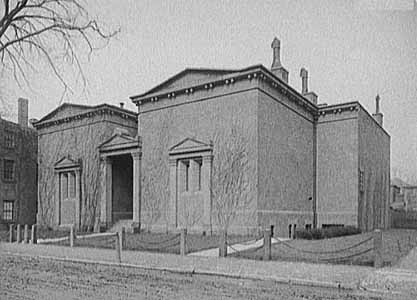
SKULL AND BONES-- BOSTON BRAHMINS' GATEWAY TO POWER
The secretive Order of Skull and Bones exists only at Yale.
Fifteen juniors are "tapped" each year by the seniors to be initiated into next year's group.
The group was founded to initiate the sons of the original families that were in control of the opium trade. This group was formed to make sure that the drug money made by these families would stay in the families. How? By making sure members would attain the most influential positions in Media, Academia, and Government (and Intelligence).
Panama and the Criminalization of the Global Finance System
A) Whitney Family (1635, Watertown, Mass.)
(B) Perkins Family (1631, Boston, Mass.)
(C) Phelps Family (1630, Dorchester, Mass.)
(D) Bundy Family (1635, Boston, Mass.)
(E) Taft Family (1679, Braintree, Mass.)
(F) Wadsworth Family (1632, Newton, Mass.)
(G) Lord Family (1635, Cambridge, Mass.)
(H) Gilman Family (1638, Hingham, Mass.)
( I ) Harriman Family (Railroads)
(J) Rockefeller Family (Standard Oil)
(K) Payne Family (Standard Oil)
(L) Davison Family (J.P. Morgan)
(M) Weyerhaeuser Family (Lumber)
(N) Pillsbury Family (Flour Milling)
(O) Sloane Family (Retail) SLOANE TRADING INC. dissolved Don Sloane> Yale Corporate Services Ltd.
ALSO: Warren Delano Jr, Coolidge, Sturgis, Forbes, Bundy, Pinchot, Goodyear, Perkins, Kellogg, Vanderbilt, Bush, Jay, Stimson, Whitney, and Lovett
drug pushers'
incredible Influence on politics
THE INCONCEIVABLE POWER AND INFLUENCE OF BONESMEN
Many names on the list speak for themselves. However, just to make things clear, there have been three Skull and Bones Presidents (including our nation's current leader George W. Bush), at least 10 Senators, two Chief Justices of the Supreme Court and many US representatives and state governors.
Bonesmen have held many significant appointed posts and positions, with a particular affinity for the Central Intelligence Agency.
It is the Boston Brahmin/Skull and Bones influenced CIA that fights the so called "War on Drugs" to make sure that Boston Brahmin drug money trail is carefully tracked.
Other notables:
Among the early initiates of the order were Henry Rootes Jackson (S&B 1839), a leader of the 1861 Georgia Secession Convention and post-Civil War president of the Georgia Historical Society (thus the false accounts of the ``good old slavery days'' and the ``bad northern invaders'');
John Perkins, Jr. (S&B 1840), chairman of the 1861 Louisiana Secession Convention, who fled abroad for 13 years after the Civil War; and William Taylor Sullivan Barry (S&B 1841), a national leader of the secessionist wing of the Democratic Party during the 1850s, and chairman of the 1861 Mississippi Secession Convention.
William Russell went on to become a general and a state legislator in Connecticut.
Alphonso Taft (1832) Co-founder of Skull and Bones, was the most influential Trustee of Antioch College.
In 1853 Taft appointed Horace Mann as President of Antioch. Taft was appointed U.S. Attorney General, Secretary of War (a post many "Bonesmen" have held), Ambassador to Austria, and Ambassador to Russia (another post held by many "Bonesmen"). His son, William Howard Taft ('87), is the only man to be both President of the United States and Chief Justice of the Supreme Court. Remember that England also conquered and owned India at the same time that the original English Puritans came to America.
Other Russell partners were John Cleve Green, whose opium fortunes financed PRINCETON UNIVERSITY and Abiel Abbott Low, whose opium fortune financed the construction of COLUMBIA UNIVERSITY.
Russell & Co. partner Abiel Abbott Low was the father of Seth Low; Seth Low was the President of Columbia University from 1890 to 1901 and the Mayor of New York City from 1902 to 1903. Seth Low was the President of Columbia University during the Spanish-American War (1898- 1899) and the Chinese Boxer Rebellion (1899-1900).
The Boston
Tea PartY:
AN american myth hiding the true story
The popular myth of the Boston Party is about American democratic revolt against the British Empire as is described in the normative account below. However, in reality, Americans at the time already had access to cheaper tea alternatives (via smuggling). So what was the Boston Tea Party really about? Could it be that it was opium inside those barrels?
Is it possible that the "Boston Tea Party" symbolically took power from the well known power (the British Empire), but actually transferred that power into the hands of the Boston Brahmins?
Boston Tea Party
The cargo manifests of all the three British ships involved in the Boston Tea Party, the Beaver, the Eleanor and the Dartmouth included opium. During the 1770s, the Chinese were trading silk and spices for European gold, nearly bankrupting the East India Company and the Rothschilds banking establishment. The tea spilled into the Boston was East India company tea, who had a monopoly of the Opium trade from India to China on tea clippers.
"Taxation Without Representation"
meant hitting the average person and small business with taxes while letting the richest and most powerful corporation in the world off the hook for its taxes. It was government sponsorship of one corporation over all competitors.
The Boston Tea Party Was Similar to Modern Day Anti-globalization Protests.
The purpose of the Tea Act was to give the East India Company full and unlimited access to the American tea trade, and exempt the company from having to pay taxes to Britain on tea exported to the American colonies. It even gave the company a tax refund on millions of pounds of tea they were unable to sell and holding in inventory.
One purpose of the Tea Act was to increase the profitability of the East India Company to its stockholders (which included the King), and to help the company drive its colonial small business competitors out of business. The Boston Tea Party arose from two issues confronting the British Empire in 1773: the financial problems of the British East India Company, and an ongoing dispute about the extent of Parliament's sovereignty over the British American colonies.
American colonists resented this favored treatment of a major company, (East India Company) which employed lobbyists and wielded great influence in Parliament. Protests resulted in both Philadelphia and New York, but it was those in Boston that made their mark in history. John Hancock organized a boycott of tea from China sold by the British East India Company, whose sales in the colonies then fell dramatically. By 1773, the company had large debts, huge stocks of tea in its warehouses and no prospect of selling it because smugglers, such as Hancock, and Samuel Adams were importing tea from Holland without paying import taxes. The British government passed the Tea Act, which allowed the East India Company to sell tea to the colonies directly and without "payment of any customs or duties whatsoever" in Britain, instead paying the much lower American duty. This tax break allowed the East India Company to sell tea for half the old price and cheaper than the price of tea in England, enabling them to undercut the prices offered by the colonial merchants and smugglers.
The cargo manifests of all the three British ships involved in the Boston Tea Party, the Beaver, the Eleanor and the Dartmouth included opium.
During the 1770s, the Chinese were trading silk and spices for European gold, nearly bankrupting the East India Company and the Rothschilds banking establishment.The tea spilled into the Boston was East India company tea, who had a monopoly of the Opium trade from India to China on tea clippers. The Boston brahmins --the fabulously rich Cabot family were in the so called "tea import " trade and the slave trade.
Perseus Collection 19th-Century American Documents
HISTORY OF THE TOWN OF MEDFORD, Middlesex County, Massachusetts, FROM ITS FIRST SETTLEMENT, IN 1630, TO THE PRESENT TIME, 1855.
Charles Brooks, Ed.Yale Manuscripts and Archives
Sterling Memorial Library
128 Wall Street
P.O. Box 208240
New Haven, CT 06520
Web: http://www.library.yale.edu/mssa/
Email: mssa.assist@yale.edu
Phone: (203) 432-1735
Fax: (203) 432-7441
Research
Medford Historical Society Papers, Volume 28
Marine Paintings and Drawings in the Peabody Essex Museum
Index to Subjects
Bold references indicate extended descriptions.
http://www.pem.org/sites/archives/mpd/mpdsidx.htm1991 JEW of Boston
Watercolor. 17 x 23 in. (43 x 58.4 cm). signed: Camelote
Built Quincy, Massachusetts, 1831, 59 tons.The White Swallow was an extreme clipper built in Boston in 1853 for the California trade.
http://en.wikipedia.org/wiki/White_Swallow_%28clipper%29
In 1868, Golden Fleece made a 44 day passage from San Francisco to Hong Kong, arriving three days before the White Swallow, which was known for her speed. White Swallow had left the Golden Gate with a two day head startMarine Paintings and Drawings
http://www.pem.org/sites/archives/mpd/mpd04.htm#r0468
